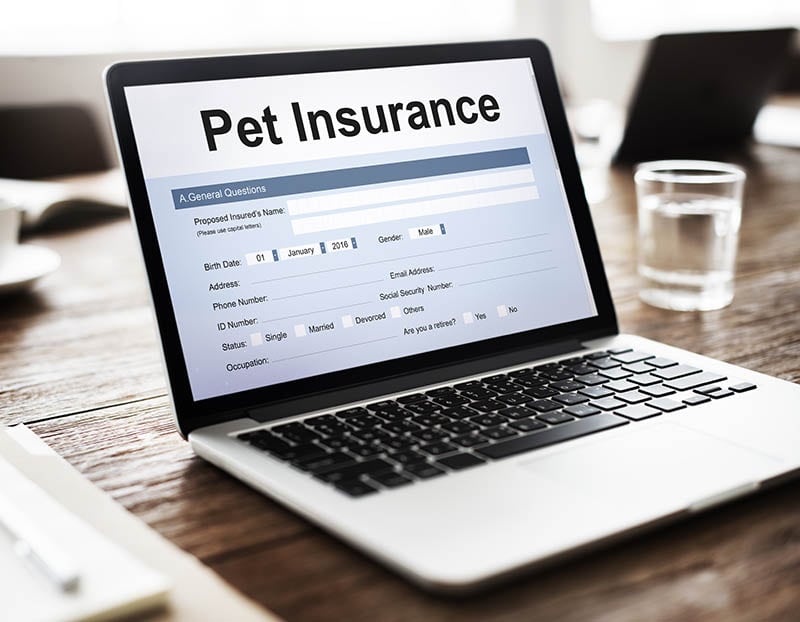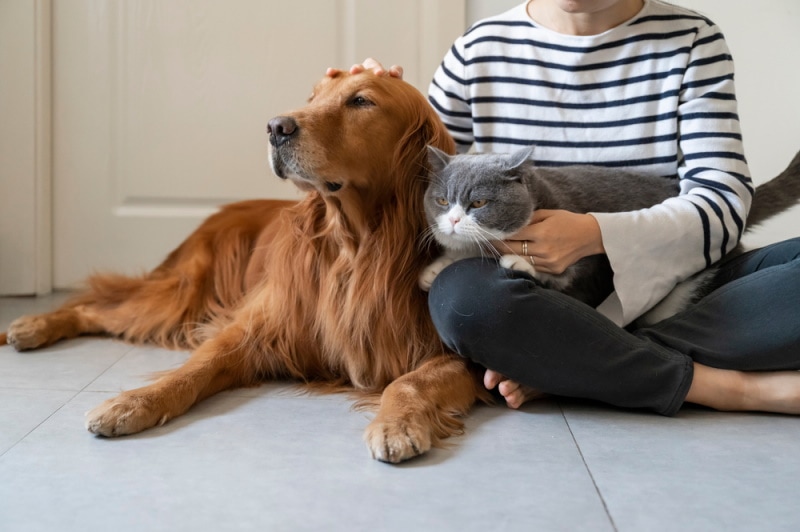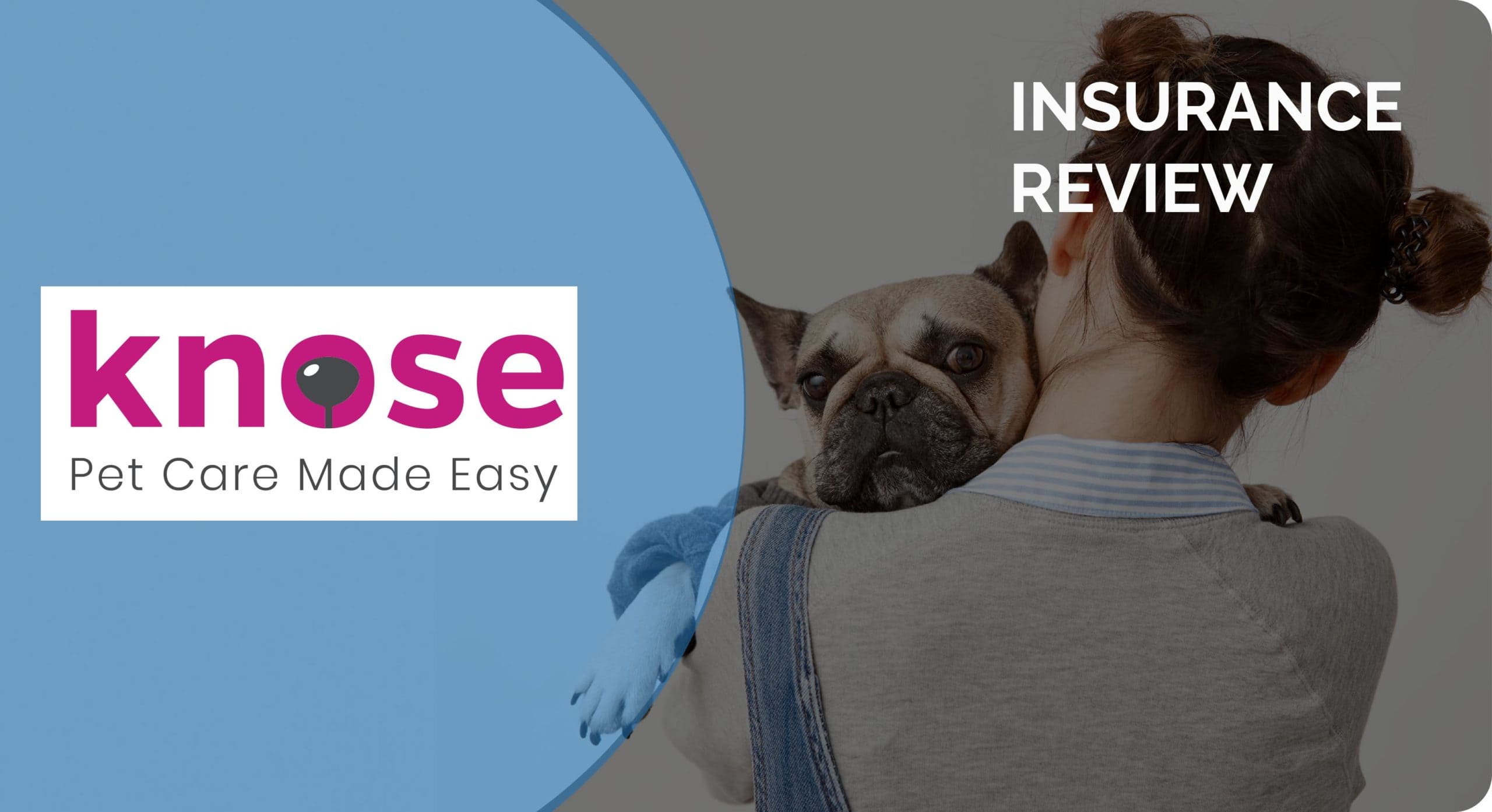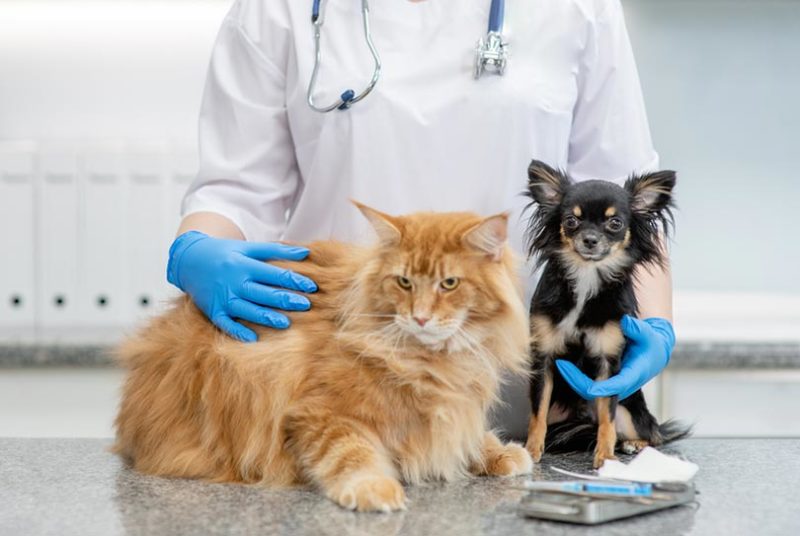How Much Does Pet Insurance Cost in New Jersey (2024 Update)
By Lorre Luther
Updated on

Pet insurance provides a safety net to protect your pocketbook in the event your pet ends up needing treatment for a serious condition such as cancer or emergency care due to an accident. Accident and illness plans offer financial protection in the event of the unexpected, but most insurers don’t include coverage for routine care.
However, several insurance providers have wellness add-ons for cats and dogs. These plans reimburse for routine care and can be great ways to save a few dollars on things like vaccinations and dental cleanings. Read on for more information about the cost of pet insurance in New Jersey. In general, you can expect to pay around $15–$30 for cats and $20–$50 for dogs.
The Importance of Pet Insurance
Veterinary bills are notoriously expensive. If your companion is diagnosed with cancer, you can spend more than $2,000 to get a diagnosis. A course of veterinary chemotherapy can cost $2,000–$5,000. Accident and illness insurance pays for these unexpected costs so you can concentrate on helping your companion recover instead of worrying about how to pay for your pet’s medical care.
Wellness plans help with routine medical care; most pay for annual veterinary visits, regular blood work, and vaccinations. Most companies offer several wellness plan tiers, making it easy to select a coverage level that makes sense for your pet’s health and your wallet. A few wellness plans even have special plans for kittens, puppies, and senior pets. Some of the higher-end packages include reimbursement for dental care and grooming.
Top Rated Pet Insurance Companies

How Much Does Pet Insurance in New Jersey Cost?
Pet insurance premiums depend on the type of animal you have, with dog plans costing more than cat coverage. Most policies average around $15–$30 for cats and $20–$50 for dogs. Purebred dogs and cats usually cost more to insure.
Older pets are almost always more expensive to enroll than puppies and kittens. Purchasing pet insurance while your cat or dog is young controls costs in two ways. Puppy and kitten premiums are far cheaper than those pet parents pay when enrolling older pets, which can actually reduce the money you spend on premiums over time. It’s also the best way to prevent a future disease or illness from being considered a pre-existing condition and excluded from coverage.
Insurance companies also factor in how much veterinary care averages where you live when determining your premium. Plan to spend more for coverage in Jersey City than if you live in Trenton or Newark.
Wellness plans cost as little as $10, but you should be prepared to spend extra for more comprehensive coverage. Many policies offer add-ons to fill gaps in their accident and illness coverage. Options include add-ons that pay for emergency veterinary exam fees, rehabilitation, and alternative care such as acupuncture. Almost all plans exclude pregnancy-related expenses requiring owners to purchase a breeding add-on for coverage.

Additional Costs to Anticipate
Claims denials tend to be the biggest issue concerning pet insurance, with disputes over pre-existing conditions being the biggest offender. Keep in mind that there may be several conditions you’ll be entirely financially responsible for if your pet’s coverage excludes them. It’s best that you completely understand your pet’s policy details, including how and when the company will determine whether your pet suffers from a pre-existing condition.
Many companies offer tiered deductibles to allow pet owners to adjust their annual premiums. Higher deductibles usually result in lower premiums. While this can be a good option if your pet is young and relatively healthy, remember that you’ll need to pay for the deductible if your pet needs care.
Some accident and illness plans don’t provide coverage for rehabilitation, requiring pet parents to purchase an add-on to obtain reimbursement for post-accident physical therapy and prescriptions.

What Do I Need to Know About Waiting Periods and Pre-Existing Conditions
Waiting periods are relatively straightforward. All plans make pet parents wait a specific period for coverage to kick in. If your pet is injured or becomes sick during the waiting period, the condition will be classified as pre-existing and excluded from coverage. Most companies divide services further, with different waiting periods for accidents and illnesses.
Some companies have relatively short exclusionary periods for accidents, often 24–48 hours. But most require pet parents to wait around 15 days for illness coverage, and many impose a 6-month waiting period for cruciate ligament conditions.
The most significant issues, however, emerge from how companies define pre-existing conditions. Many review your pet’s medical records retroactively to see if your buddy was showing signs or symptoms of any newly diagnosed illness before you purchased the coverage.
This review often includes examining your pet’s entire medical history and can result in surprise claim denials if you’re unprepared. Other companies apply pre-existing conditions bilaterally, refusing to provide coverage for a condition on the left side of your pet’s body if your pet has already been treated for a similar problem on the right. The bilateral exclusion is often applied to conditions and diseases involving joints, eyes, and ears.

Does Pet Insurance Cover Grooming and Dental Care?
Generally, accident and illness insurance doesn’t cover routine veterinary costs, including vaccinations, grooming, and dental care. You’ll need to purchase a separate wellness package to obtain reimbursement for some of these routine costs.
Some of the more basic wellness plans won’t help with grooming and dental care, as they tend to concentrate more on basics such as annual veterinary visits and vaccinations.
More comprehensive plans often include some coverage for grooming and teeth cleanings. But make sure to check the repayment limits before signing up for a wellness plan, as many offer relatively low reimbursement for grooming and dental care that won’t fully cover the cost of having your pet pampered or their teeth cleaned while under anesthesia.
Companies with multiple wellness plan tiers often permit pet parents to switch coverage levels every year. Wellness plans designed for kittens/puppies and seniors are often good choices and can save you a ton of money by reducing the cost of or paying for multiple veterinary visits per year.

How to Keep Your Pet Safe at Home
Keeping your pet safe at home is often the best way to avoid a traumatic trip to the veterinary hospital (and the associated costs). While it’s impossible to prevent every accident, a bit of prevention can ensure your pet stays healthy and happy.
Pets end up headed to the veterinarian every day because they’ve gotten into something poisonous. Food and plants are big offenders. Onions, leeks, chives, and garlic are toxic to cats and dogs. Chocolate and alcohol are also poisonous as well. Cats are incredibly sensitive to lilies—just a few bites can be fatal. And amaryllis and foxglove can put your dog in the hospital if they scarf down too much. Not having toxic foods and plants in the house is hands down one of the best ways to prevent a midnight trip to the animal hospital.
Also, you should keep pets away from yarn, twine, or string since these long thin materials can cause a severe bowel obstruction.

Conclusion
Pet insurance offers dog and cat parents a way to protect their finances if their cat or dog needs emergency care or is diagnosed with a serious illness requiring expensive treatment. Most reimburse for accidents and even serious illnesses such as cancer and diabetes. But keep in mind that all insurance plans exclude pre-existing conditions and impose waiting periods. There’s a great deal of variation in how companies determine what qualifies as a pre-existing condition, so it pays to dig into the details before deciding which plan to select.
Featured Image Credit: Rawpixel.com, Shutterstock









